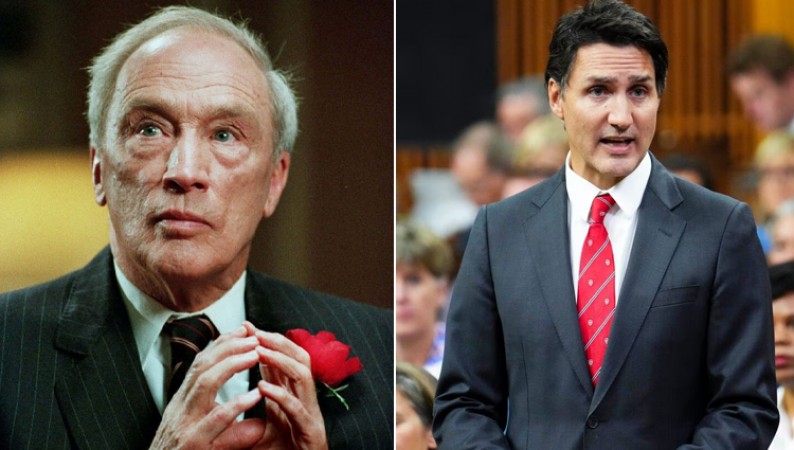
On September 18th, Canadian Prime Minister Justin Trudeau accused India of orchestrating the murder of Khalistani terrorist Harjeet Singh Nijjar on Canadian soil. This accusation, made in the Canadian parliament, has ignited a diplomatic dispute between India and Canada, leading to the expulsion of diplomats from both sides. However, Trudeau's allegations lack concrete evidence and have raised questions about Canada's stance on Khalistani extremism.
The Khalistani Connection in Canada:
Hardeep Singh Nijjar, a prominent Khalistani leader, was assassinated on June 18th in the parking lot of Surrey Gurdwara Sahib in Brampton, British Columbia. Nijjar, who was the chief of the banned Khalistan Tiger Force (KTF), had a history of advocating for Sikh separatism and had a cash reward of Rs 10 lakh on his head, making him one of India's most-wanted terrorists.
Trudeau's Remarks and Diplomatic Fallout:
Trudeau's recent remarks in the Canadian parliament have added fuel to the fire. He asserted that he had found "credible allegations of a potential link between agents of the Government of India and the killing of Canadian citizen Hardeep Singh Nijjar." This statement not only strained India-Canada relations but also raised concerns about Canada's commitment to combating extremism.
A Troubling History:
Canada's involvement with Khalistani extremism goes back decades. In 1982, then-Prime Minister Pierre Trudeau, Justin Trudeau's father, refused India's request to extradite Khalistani terrorist Talwinder Singh Parmar. Parmar was accused of orchestrating the 1985 bombing of Air India Flight 182, resulting in the deaths of 329 people, mostly Canadian citizens. Pierre Trudeau's government declined the extradition request on the grounds that India did not recognize Queen Elizabeth II as the head of state, a decision that drew criticism from India.
The Air India Bombing and Pierre Trudeau's Role:
The Air India bombing, orchestrated by Khalistani terrorists, including Parmar, stands as a dark chapter in Canada's history. Parmar, the head of the Babbar Khalsa, had threatened that Indian planes would fall from the sky. Pierre Trudeau's refusal to extradite Parmar and the subsequent bombing raised questions about Canada's handling of extremist elements.
Negligence and Consequences:
In 2010, a commission of inquiry led by Justice John Major blamed Canadian police and intelligence agencies for their grave negligence and mishandling of the Air India bombing investigation. The report called the failure to prevent the bombing "inexcusable." Key evidence was lost or destroyed, leading to the acquittal of the accused in the trial.
Canada's Continued Support for Khalistani Elements:
Despite international criticism and India's concerns, Canada's support for Khalistani elements persists. Posters glorifying Parmar have appeared in Canada, indicating the brazenness of this support. Trudeau's recent remarks have further strained relations between the two nations.
The Way Forward:
Canada's long-standing ties to Khalistani extremism have drawn criticism from India, and this diplomatic row has exposed the need for stricter action against anti-India forces using Canadian soil. As of now, the Indian External Ministry has strongly opposed the allegations made by Trudeau. This diplomatic crisis highlights the challenges of addressing extremism and terrorism in a global context and calls for a more robust international response.
In response to Trudeau's allegations, India expelled a Canadian diplomat, signaling its commitment to safeguarding its sovereignty and combating extremism. However, the underlying issue of Canada's stance on Khalistani extremism remains a matter of concern in India-Canada relations.
Hardeep Singh Nijjar: The Khalistan Sympathizer Who Sparked an India-Canada Diplomatic Row
Video: Sonia Gandhi Prompts Congress MLA Adhir Ranjan Chowdhury During Parliament Session
Tragedy in Hyderabad: Unraveling the Massacre of Hindus by Razakars in 1948